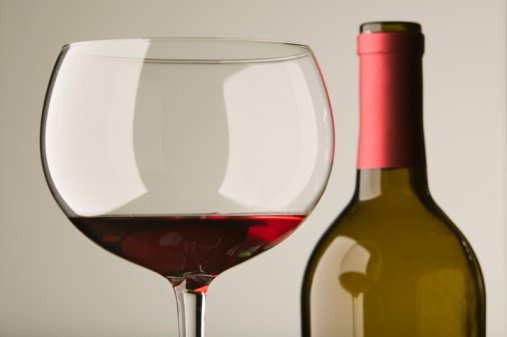Is Reviewing Wine Bad for my Health?
I taste wines for a living—around 3,000 a year, in fact. While my mom suspects this may not be a real career, I enjoy it, often, without a second thought. Then I read Pete Wells’s column in The New York Times announcing he was stepping down as the newspaper’s restaurant critic.
Suddenly, I started having doubts about my chosen career path. The “come-to-Jesus” health moment Wells described sounded familiar.
Wells wrote about the doctor’s appointment where he learned he was technically obese, with cholesterol, blood sugar and blood pressure numbers that were, to put it mildly, suboptimal. Former New York Magazine food critic Adam Platt told Wells, “It’s the least healthy job in America, probably.”
Hyperbole aside, if reviewing restaurants is the least healthy job out there, is wine reviewing a close second?
People look at me funny when I tell them I put 3,000 wines in my mouth each year as part of my newspaper and magazine work. I get it. Wine reviewing at this level is a surreal extreme sport with more spitting than a season’s worth of New York Yankees games.
The problem is that while I jokingly describe my job as an extreme sport, I sure haven’t been training like an athlete.
I taste wines for work approximately 310 days a year. My routine on those days is to get up at 6 a.m., eat breakfast and go for a walk. After that, it’s showtime.
My mornings are spent doing newspaper work, which involves a lot of sitting in a chair. By late afternoon, I’m entering tasting notes into Wine Enthusiast’s database, which means more chair time. After that, I work with my assistant to prepare blind tastings that typically include eight to twelve wines.
Weighing In on the Matter
But I’m spitting, so it’s no big deal, right?
Six years ago, when I took the plunge into full-time wine writing, my doctor politely called me un-pleasingly plump and brought up topics like pre-diabetes and hypertension. He also told me to shed 25 to 30 pounds, stat.
I didn’t believe him. I knew I wasn’t the svelte guy I was in college, but I felt great.
After the Wells column came out, I called Patrick Comiskey, who spent 20 years as the domestic critic for Wine & Spirits Magazine. Comiskey and I are the same age, and he estimates that “at the height of things,” he, too, was tasting around 3,000 wines annually.
Comiskey said he gained two pounds a year “for a very long time” while reviewing wine. He also described a three-day wine tasting session in New York City, during which, after a few days of basically not moving from his chair, he developed stiffness in his knee, leading to a chronic problem that is only now returning to some sense of normal.
Inactivity and weight gain were also plaguing me, but I wasn’t paying attention. “It’s not too hard to be delusional about all of this,” Comiskey says. “I’m still at the age where I can deny that I’m getting older and believe that things like this will go away.”
I know what Comiskey means. I feel like I’m still 35, even if my blood vessels are under the illusion that they are pushing 78.
I told my doctor I walked six miles weekly. “Double it,” he responded. I also told him I was swallowing two glasses of wine daily. “Cut that to 10 glasses for the week,” he says. He probably had a lower number in his head, but my doctor is nothing if not a realist.
After a year of extra walking and reduced wine swallowing, the weight wasn’t coming off, and my blood pressure was trending up the charts like a hit record. Blood sugar levels weren’t far behind. I kept plugging along at blind tasting, a wall of wine every night.
Wells’s resignation jolted me into reality. His journey paralleled mine, fueled by rich sauces instead of Pinot Noir and Syrah.
With the World Health Organization (WHO) telling me that wine is unsafe at any sip, I considered the possibility that I was a dead man walking. And those Proposition 65 warnings on every box of wine I received from California had me believing that I had cancer every time my mouth would tingle. Which then got me thinking about the potential damage all that acid was doing to my teeth.
I confess to being concerned enough to consider putting wine reviewing in my rearview mirror to find something more conducive to weight loss. After all, Comiskey told me, “Some people handle this lifestyle exceedingly well—others plainly don’t.”
I knew which side of the equation I wanted to be on.
Doctor, Doctor, Give Me the News
To better understand my risks, I called Dr. Miles Hassell, an internal medicine specialist who practices in the Comprehensive Risk Reduction Clinic and established the Integrative Medicine Program at Providence Cancer Institution of Oregon in Portland. He keeps up with the scientific literature on diet and health like few people on this planet.
Hassell ripped off a list of studies with titles like the “Prospective Urban Rural Epidemiology Study,” “Nurses’ Health Study,” “European Prospective Investigation into Cancer and Nutrition” and “INTERHEART.”
“In every major epidemiological study of which I am aware, and I don’t use the word ‘every’ lightly, when you look at alcohol consumption, people with low to moderate consumption have lower total mortality than those who drink too much or don’t drink at all,” says Hassell.
When looking at these large peer-reviewed studies, Hassell pointed out that alcohol consumption is one of the four or five factors most strongly associated with longevity. “Those other factors are eating an omnivorous diet, exercising, not smoking and not being fat,” he says. “Alcohol consumption is right up there with them as a stand-alone item, and that, in my view, deserves some note before someone starts condemning it too much.”
After stating that “in the context of a healthy lifestyle, it appears that alcohol is a positive contributor to longevity,” Hassell asks me how my waistline was doing. I almost blurted out, “Not great,” but thankfully, our conversation turned to a study from the Netherlands that Hassell thought was relevant to my situation.
Spit Happens—or Not
The cleverly titled Bac(chus) experiment had subjects swishing and spitting 10 15 mL wine samples over the course of an hour while another group swallowed their samples. I probably put twice that much wine, or more, in my mouth during a blind tasting.
I also have to confess that, as much as I try to spit like a champion, there are occasions when a small amount of wine makes it down my throat during a blind tasting.
Hassell says the spitters were found to have an alcohol absorption rate of one-twentieth, or 5%. “That implies for every 20 drinks you sample, it’s the same as drinking one glass,” Hassel says.
Even though this is just one study, that proverbial lightbulb went off. I had been thinking that spitting minimized my alcohol absorption to near zero. Now I had to take into consideration the possibility that given the fact that I’m tasting 3,000 wines a year, I was, in reality, drinking more glasses of wine than I thought.
Hassell’s caveat about “in the context of a healthy lifestyle” flashed before my eyes. I found myself in a hole I didn’t even realize I was digging.
After discussing exercise with Hassel, I realized I also needed to up my game in that area. Walking alone wasn’t going to cut it. I also needed to start working both my upper and lower body in ways that pushed my heart three times a day, even if it was just running stairs or jumping rope for a minute.
He also suggested including a game in the workout schedule. “Add something like tennis, pickleball or ping-pong,” Hassell says. “Ping-pong actually has the strongest data.”
While I wait for my ping-pong table to arrive, I have a dentist appointment looming.

Taking Care of Teeth
The first time I told my dental hygienist how many wines I tasted in a year, she says, “That’s crazy.” I was given a bubblegum-flavored Clinpro 5000 gum prescription to rebuild my enamel.
I’ve had two cavities drilled in the past four years, which I think is unusual at this stage in my life. So, I called Dr. Bryan Guthrie, an assistant professor of restorative dentistry at the Oregon Health & Science University’s School of Dentistry in Portland.
I asked him what I risked by putting this much wine in my mouth. Guthrie identified wine’s acidity as the number one risk to the structure of my teeth. Even though I knew this, I clearly wasn’t doing enough to protect my teeth against this ocean of wine I was swishing.
He says I could have a digital scanner take a baseline of my teeth to help keep track of my enamel erosion. After that, I should do whatever I can to stimulate saliva flow. “Your saliva is the best buffer to those acids,” Guthrie says.
That means drinking plenty of water but ensuring it’s not a bottled brand with elevated acidity. I could also drink tap water with a pinch of baking soda. If I was suffering from dry mouth, Guthrie suggested chewing on a piece of paraffin to stimulate my salivary flow.
Finally, he offered advice given to patients suffering from bulimia or gastric reflux. I should wait an hour or so after a tasting before brushing my teeth. Stomach acid is way stronger than what I’m dealing with from wine, but it still gave me pause that I was receiving similar advice.
After a month spent chatting with colleagues and healthcare professionals, I sat down the other day to do some soul-searching. I decided I love my work, so doing the “full Wells” and quitting my wine jobs was off the table.
I’m instead going to keep that hidden alcohol absorption in mind and drink accordingly, drink lots of alkaline water, chew on paraffin and make my assistant play ping-pong with me in the garage. You see, I love living even more than I love my work.
Pete Wells, thanks for the nudge.
More Health Coverage

From the Shop
Find Your Wine a Home
Our selection of red wine glasses is the best way to enjoy the wine’s subtle aromas and bright flavors.
Published: September 16, 2024

